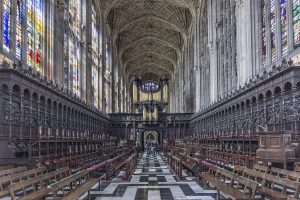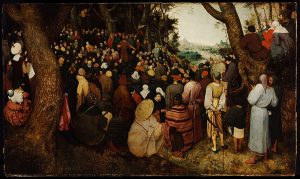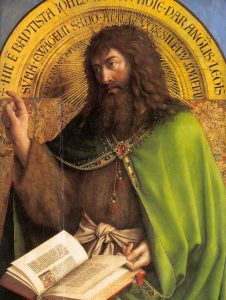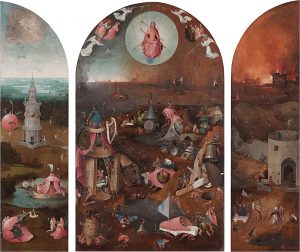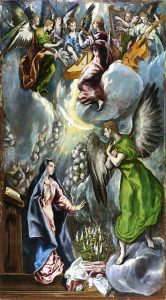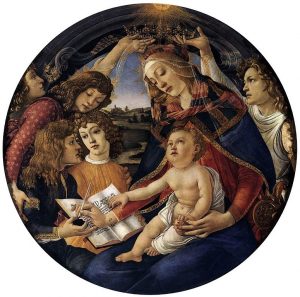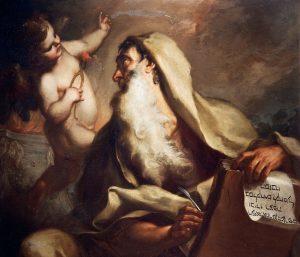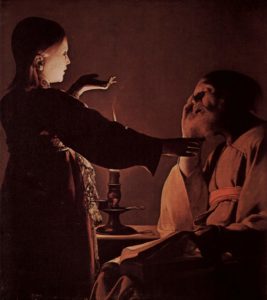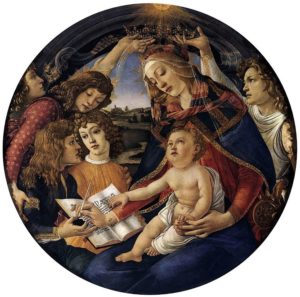Illuminations on the Lectionary readings for Nov. 27, 2022 (Advent 1C)
First Reading: Isaiah 2:1-5
Advent begins, and with it a new liturgical year centered on the Gospel according to Matthew. The name “Advent” is based on the Latin word for “coming.”
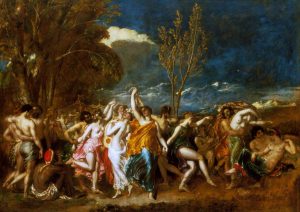
The World Before the Flood (1828), oil painting on canvas by William Etty (1787-1849). Southampton City Art Gallery, England. (Click image to enlarge.)
During these four weeks we prepare for the coming celebration of the birth of Jesus, the Incarnation, on Christmas Day. We also consider the tradition of the final coming of Christ in power and glory. Sunday’s readings look forward to a bright Messianic future. In verses of poetic beauty in our first reading, the prophet Isaiah foresees Jerusalem and its Temple restored. It will be the highest of the mountains, the center of a world that recognizes it as the house of God. It will be a world of peace, a time when swords have been beaten into plowshares and there is no more war.
Psalm: Psalm 122
Psalm 122 closely mirrors the prophet’s hope in the first reading for a future of triumph and peace for Jerusalem, the city of God, the throne of the new King David, the Messiah. The House of David is a city at peace. It is a city on a mountain where all the tribes of Israel go up with gladness to praise God’s name. At David’s throne, the Psalmist sings, all the people can expect fair judgment. There the love of God is rewarded with security, prosperity and peace.
Second Reading: Romans 13:11-14
Paul exhorts the people of the young church in Rome to be prepared for the return of Jesus, an event that Christians of that time believed and prayed would come very soon. “The night is far gone, the day is near,” Paul writes to his Roman flock in this letter that we will hear during three of the four Sundays of Advent. In the meantime, Paul advises the people to behave well, live abstemiously, avoid quarrels and jealousy. These verses follow immediately after Paul’s urgent reminder to follow God’s commandments and love our neighbors as ourselves, a way of life that prepares us to “put on the Lord Jesus Christ.”
Second Reading: Matthew 24:36-44
In all three years of the Lectionary cycle, the Gospel for the First Sunday of Advent is apocalyptic, anticipating the second coming of Christ. In Sunday’s Gospel according to Matthew we find Jesus talking with the apostles on a hillside on the Mount of Olives, looking across a small valley toward the Temple. In preceding verses Jesus has told them – in words similar to those we heard told by Luke two weeks ago – that the temple will be torn down amid a time of war and great suffering, before Christ comes to usher in a new age. Now Jesus warns them that only God knows when the last days will come, just as sinful humans in Noah’s time had no warning of the coming flood.

